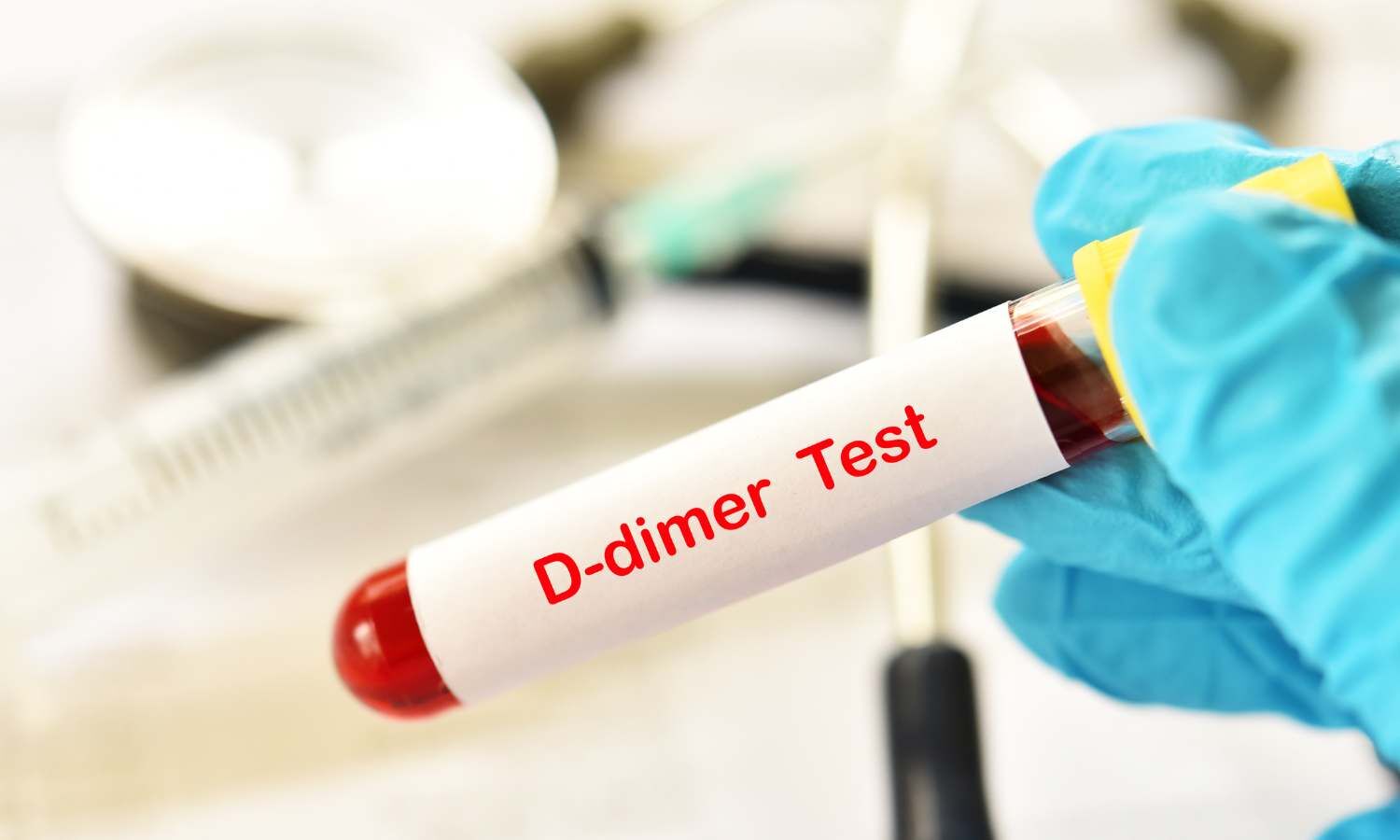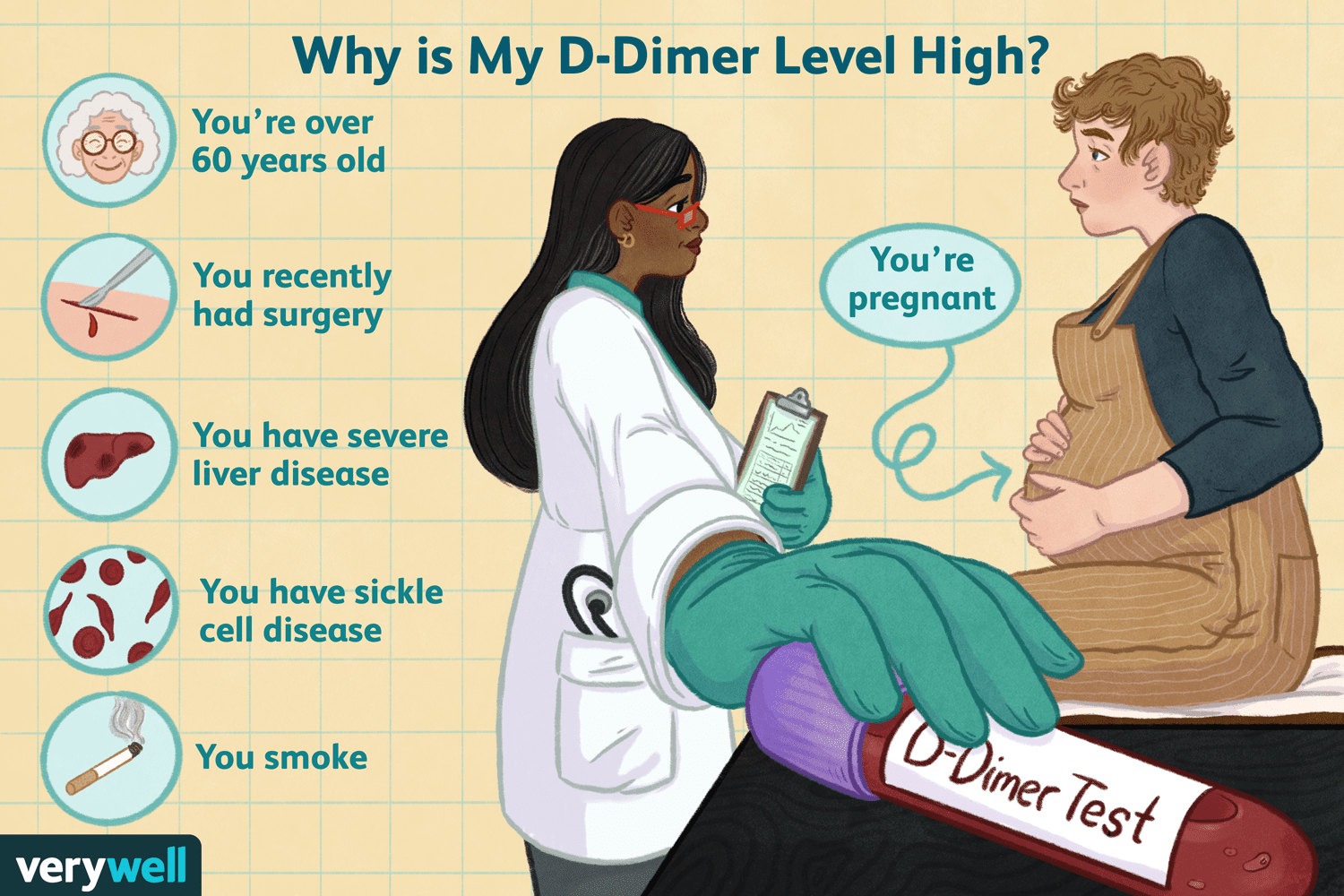
Key facts
- A D-dimer test is a blood test that checks for blood-clotting problems.
- It measures the amount of D-dimer, a protein your body makes to break down blood clots.
- A positive test means the D-dimer level in your body is higher than normal. It suggests you might have a blood clot or blood clotting problems.
- It’s important to discuss blood test results with your doctor, who can explain what the results mean in your situation.
What is a D-dimer test?
A D-dimer test is a blood test that checks for blood-clotting problems.
This test measures the amount of D-dimer, a protein your body makes to break down blood clots.
Why would I need a D-dimer test?
Your doctor might ask you to have this test if you have symptoms of blood clotting problems.
A D-dimer test may be used as part of the assessment for different problems including:
- deep vein thrombosis (DVT) — a blood clot in your deep veins, usually in the legs
- pulmonary embolism — a blood clot in an artery in your lungs
- disseminated intravascular coagulation (DIC) — a condition that stops your blood from clotting normally
- blood clotting caused by a snake bite
- thrombosis with thrombocytopenia syndrome (TTS) — a very rare blood clotting condition
A D-dimer test is commonly used to rule out problems such as DVT.
If you are having treatment for DIC, your doctor may use the D-dimer test to monitor your condition.
How do I prepare for a D-dimer test?
No preparation is needed for this test. A blood sample is usually taken from a vein in your arm.
Understanding your results
A positive test means the D-dimer level in your body is higher than normal. It suggests you might have a blood clot or blood clotting problems.
A normal D-dimer level usually shows that a clotting problem is unlikely.
The D-dimer test is usually used with other blood tests and imaging scans. That’s because the D-dimer test cannot tell where in the body blood clots are or what may have caused them.
Sometimes the D-dimer test can be positive in people without clotting problems. This can happen in:
- older people
- during pregnancy
- if you are a smoker
- if you have recently had surgery
D-dimer tests can also be positive in people with other conditions, such as severe infections.
Anticoagulant medicines (used to prevent and treat blood clots) can also affect your D-dimer test results.
It’s important to discuss your results with your doctor, who can explain what the results mean in your situation.





